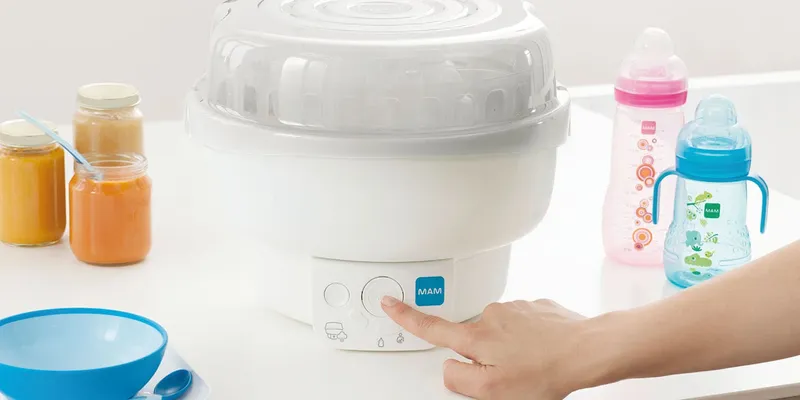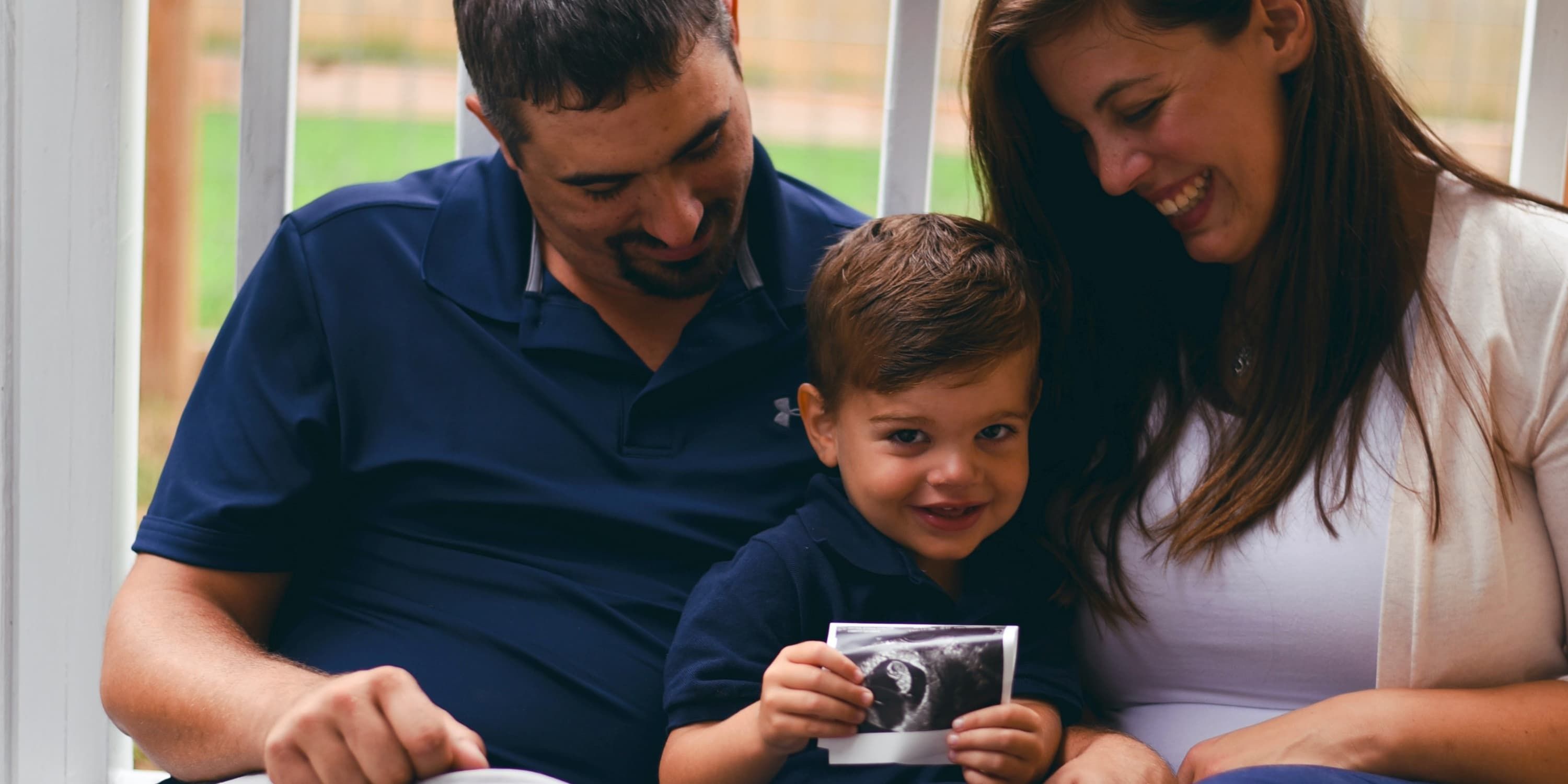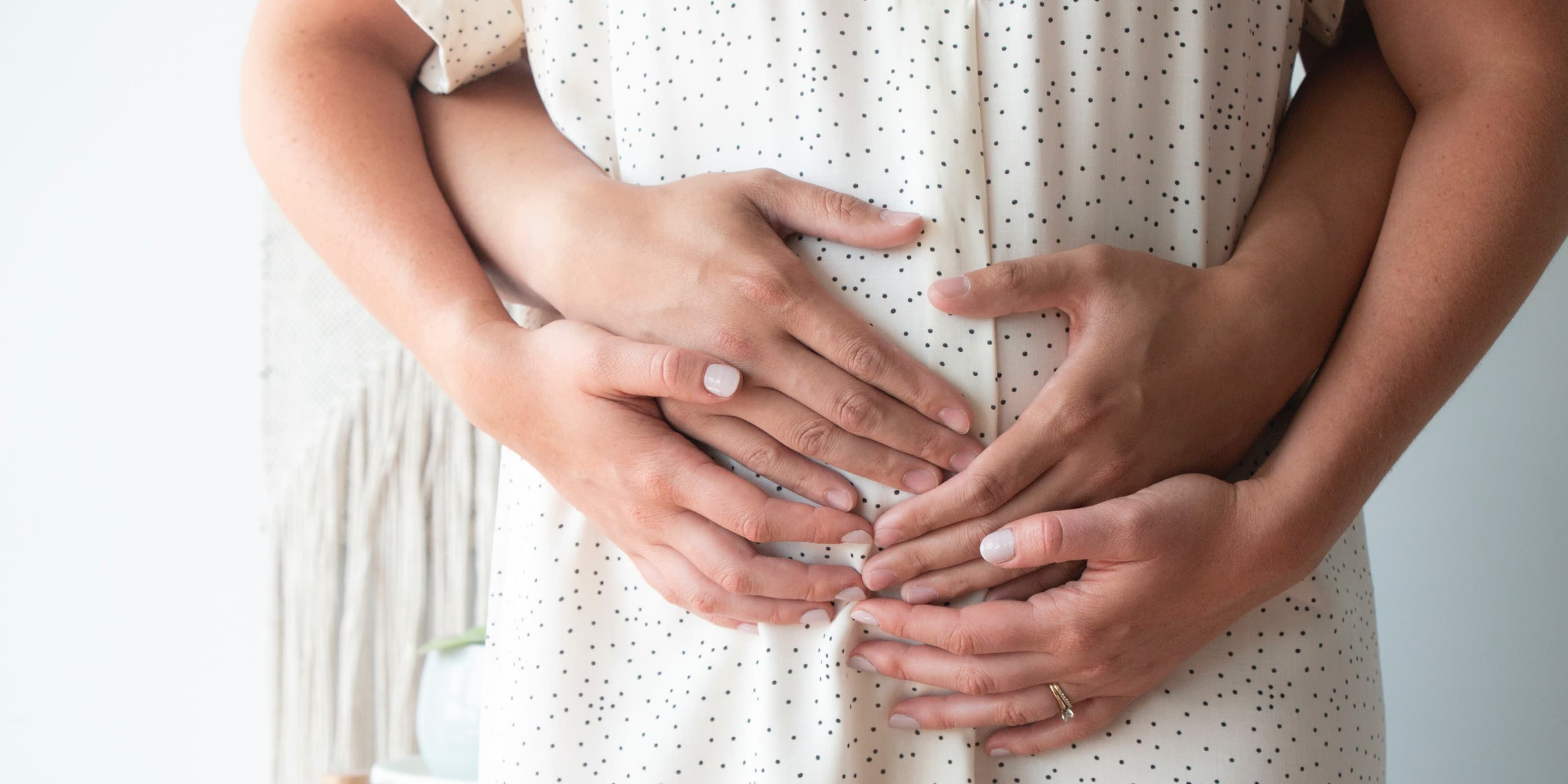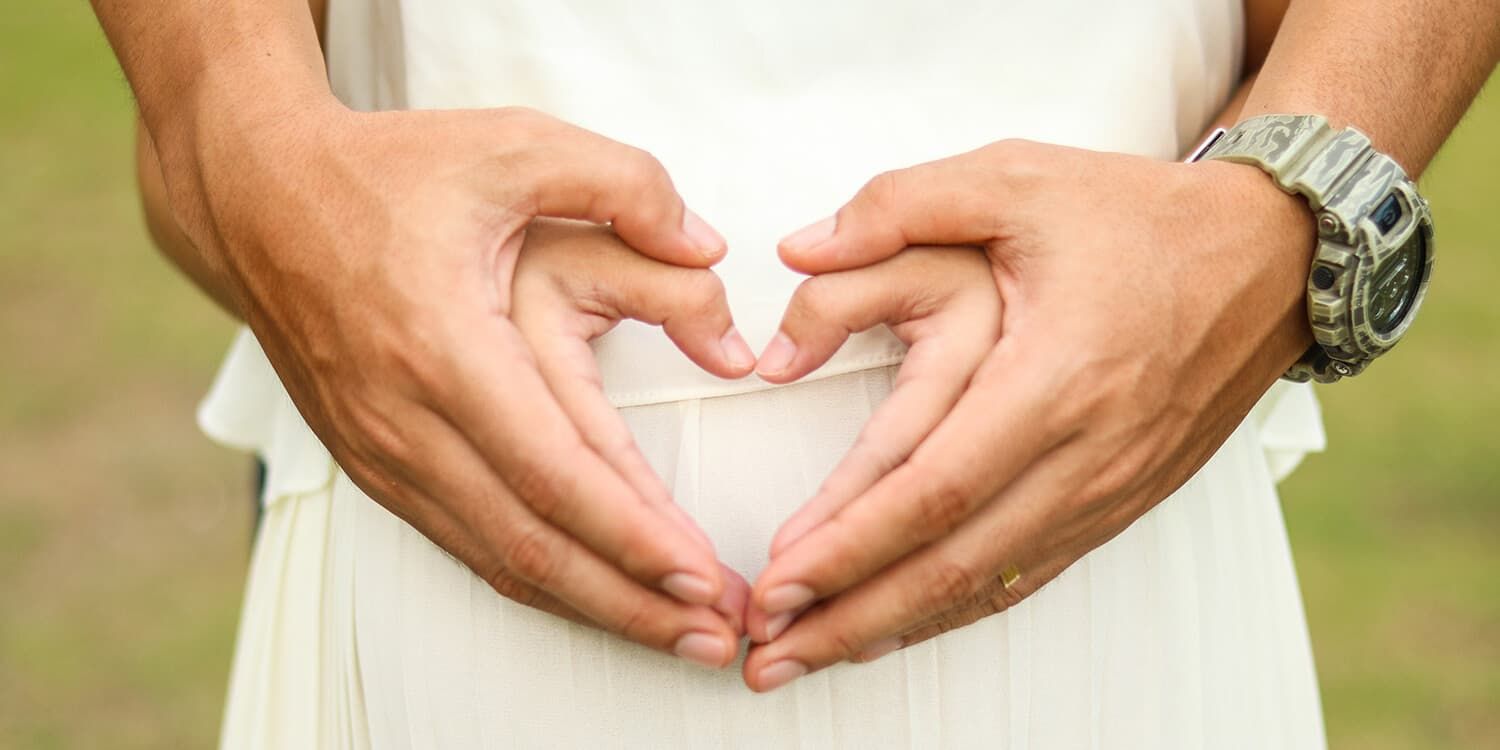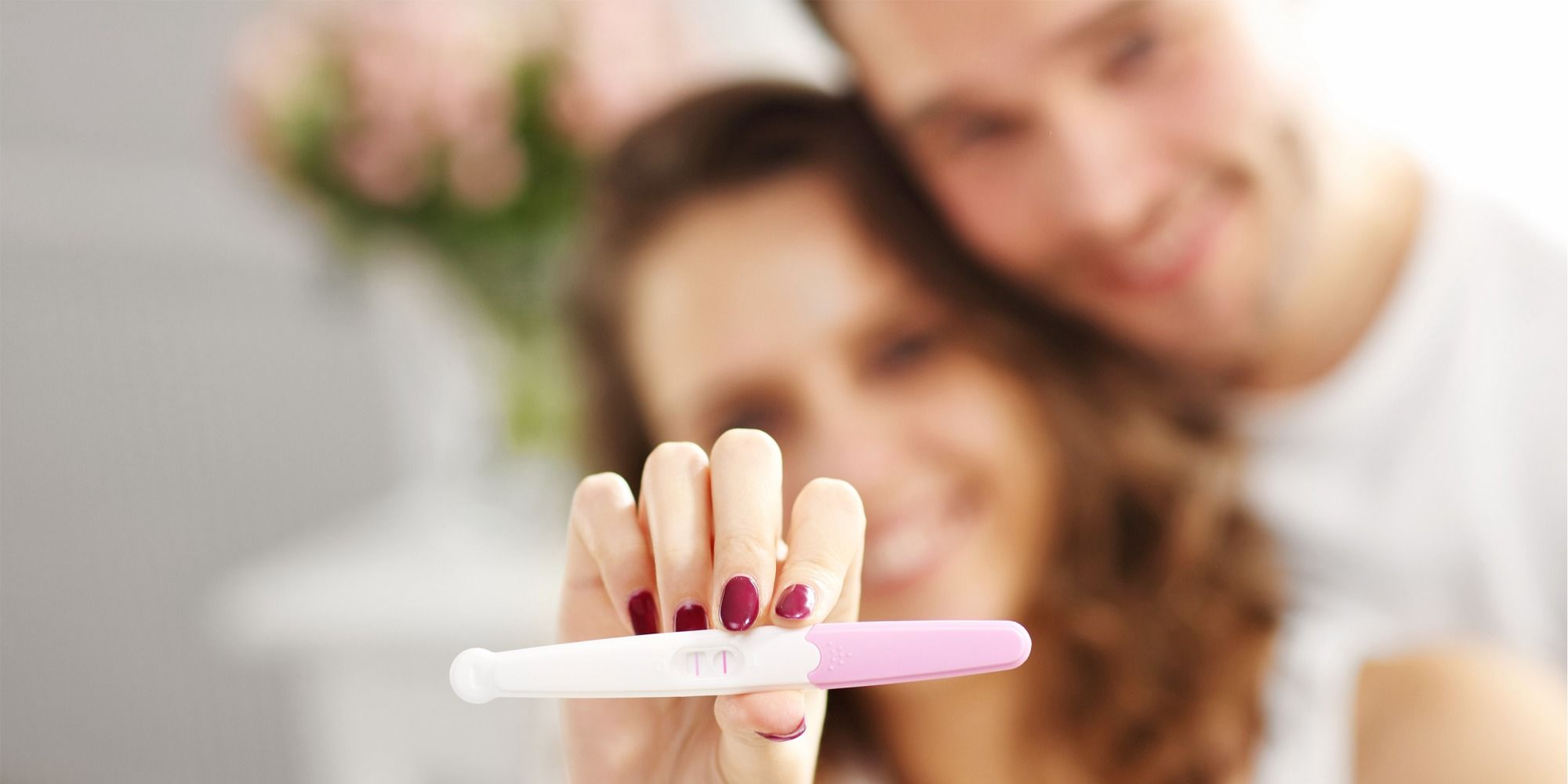A large head and arms like paddles – your baby has grown enormously, and your uterus along with it. Even though there is still not very much to see, in the 8th week of pregnancy there is a whole lot going on inside you and with what might be the best secret in the world. Read on to discover exactly what is going on and why you can look forward to the heartbeat at your first appointment with your midwife.
What's going on inside you at 8 weeks pregnant?
This is when many expectant mothers have their first appointment with the midwife. This appointment is known as your booking appointment. Your midwife will take a full family and medical history including your obstetric history. They will measure your height, weight, BMI, blood pressure and refer you to the sonography department for a dating scan.
Your baby is now roughly the size of a raspberry.
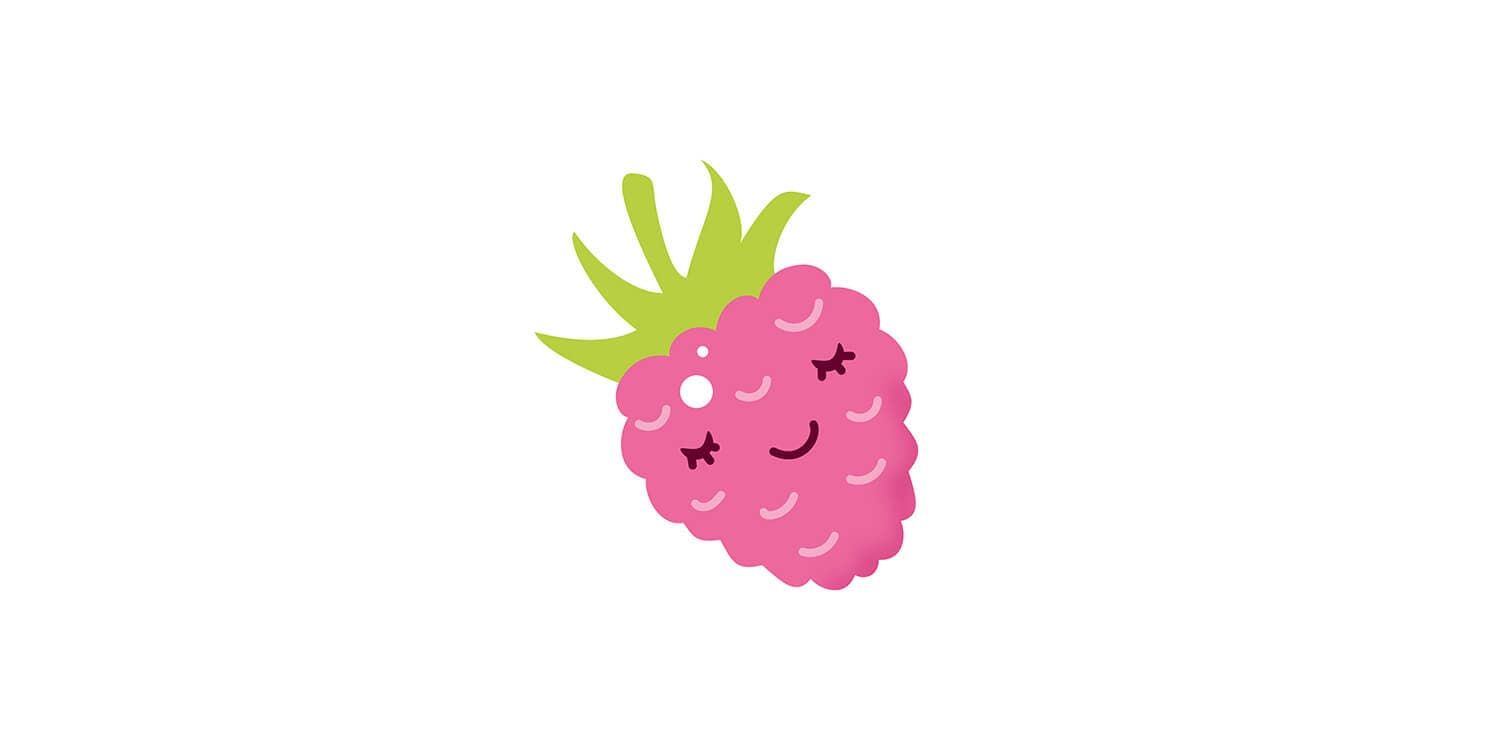
The head is still relatively large compared to the rest of the body. But the emphasis of development this week is in the top half: the arms are growing slightly faster than the legs. The jaw can be seen with the teeth already in place, and the future bones are starting to develop cartilage.
The placenta is fully formed and starts to take over from the corpus luteum, which has been helping your baby develop until this point. Blood vessels in the umbilical cord bring nutrients and oxygen to the baby and eliminate metabolic waste products.
The embryo is now around 9-16 mm long.
How do you feel at 8 weeks pregnant?
Your uterus has now doubled in size and may have started to press on your bladder, meaning plenty of trips to the toilet. If this is affecting your sleep then try to drink plenty of fluids in the day and avoid drinking after 6pm.
It’s not easy being 8 weeks pregnant, you’re likely experiencing lots of early pregnancy symptoms such as nausea and vomiting, a heightened sense of smell, bloating, mood swings and fatigue. Rest assured though that as your pregnancy progresses these symptoms should start to ease.
Why do I have to have blood taken and my urine tested during pregnancy?
Expectant mothers often have to give a blood sample at prenatal check-ups. This is done to determine your blood group and to find out whether you have antibodies to certain diseases, this blood test will also be used to determine whether you are rhesus negative or positive.
Your urine is tested for sugar, protein and bacteria. The aim of all these tests is to detect possible problems at an early stage. Problems include gestational diabetes, pre-eclampsia (pregnancy toxaemia) or infections.
Why is it important to know your rhesus factor?
The Rh factor is a protein that can be found on the surface of red blood cells. If you don’t have this protein you will be classed as rhesus negative and if you do you’re known as rhesus positive. The rhesus factor is inherited from either the mother or father and only becomes an issue if the mother is rhesus negative due to the possibility of blood mixing during pregnancy or delivery. This can then have consequences for future pregnancies. To help reduce the risk all women who are screened from their blood test booking to distinguish their rhesus status. If a woman is found to be rhesus negative she will be offered medication to prevent her from developing antibodies and caused issues in future pregnancies.
What is important now concerning diet during pregnancy?
In early pregnancy, diet does not mean increasing the amount you eat. It is more about eating a little differently. For "building", your body needs more protein, vitamins and minerals – your doctor is the best person to advise on what you should add to your menu and which are the ideal dietary supplements for you. You should avoid large quantities of sugar and other simple carbohydrates since these cause the blood sugar level to rise rapidly. This can also have harmful effects on your circulation and encourage morning sickness.
Foods can also transmit pathogens. It is best to discuss with your midwife what you need to think about in your environment. Good kitchen hygiene is generally advisable. You should also avoid raw meat, fish and egg, cured meats and unpasteurised milk products. Can you see a pattern emerging? That's right. Mums-to-be should avoid many things which have not been heated thoroughly or pasteurised. Fruit and vegetables should be washed thoroughly.
Photo: Unsplash


















